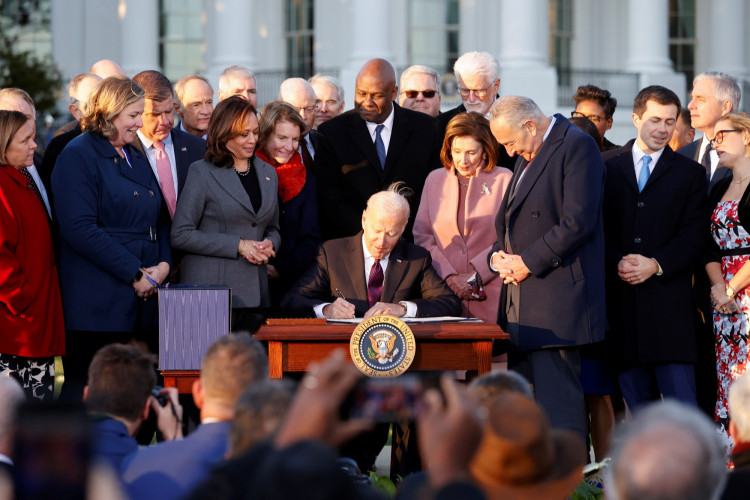U.S. President Joe Biden officially signed into law the bipartisan $1 trillion infrastructure bill during a ceremony inside the White House on Monday. The signing of the bill comes after months of debate and amendments, followed by the approval of a deeply divided Congress.
The bill was signed on the White House South Lawn, where the ceremony was held to accommodate the big crowd that witnessed the event. Both Democrats and Republicans gathered during the signing, which was a rare moment that saw both parties stand together to witness the bipartisan agreement.
Biden, whose job approval ratings have declined due to his management of the economy and other crises, heard encouraging cries from those in the audience, and he received a standing ovation after signing the bill.
Biden hailed the law as a "blue-collar plan to rebuild America," saying that it proved that Democrats and Republicans could join together and accomplish great results despite their differences.
The bill that Biden signed does not cover the whole backlog of essential infrastructure improvements in the United States, and it is not as ambitious as Biden's first $2.3 trillion proposal. Biden's plans for investing in "human infrastructure" had to be scaled back to win over a substantial number of Senate Republican votes
Nevertheless, administration officials and a wide variety of independent economists and industry organizations believe that the package is the most significant start in a generation toward updating vital infrastructure.
The bill aims to boost job creation across the country by distributing billions of dollars to state and local governments to repair failing bridges and roads and provide broadband internet access to millions of Americans.
Some of the first spending waves will go toward areas that Biden targeted during discussions, such as tens of billions of dollars to boost broadband internet access and repair dangerous lead drinking pipes.
As the United States experiences a pandemic surge in demand for consumer products, many of which are imported, funding has already been promised to assist clear backlogs at the nation's ports, which are contributing to shipment delays and price rises.
Biden expects the package to provide a variety of benefits over time, such as leaner supply chains, faster and more equitably distributed internet access, and improved educational outcomes for children.
It also includes tens of billions of dollars for road and bridge reconstruction, freight and passenger rail system upgrades, and pollution cleanup, all of which might assist enhance the American economy's productivity.





